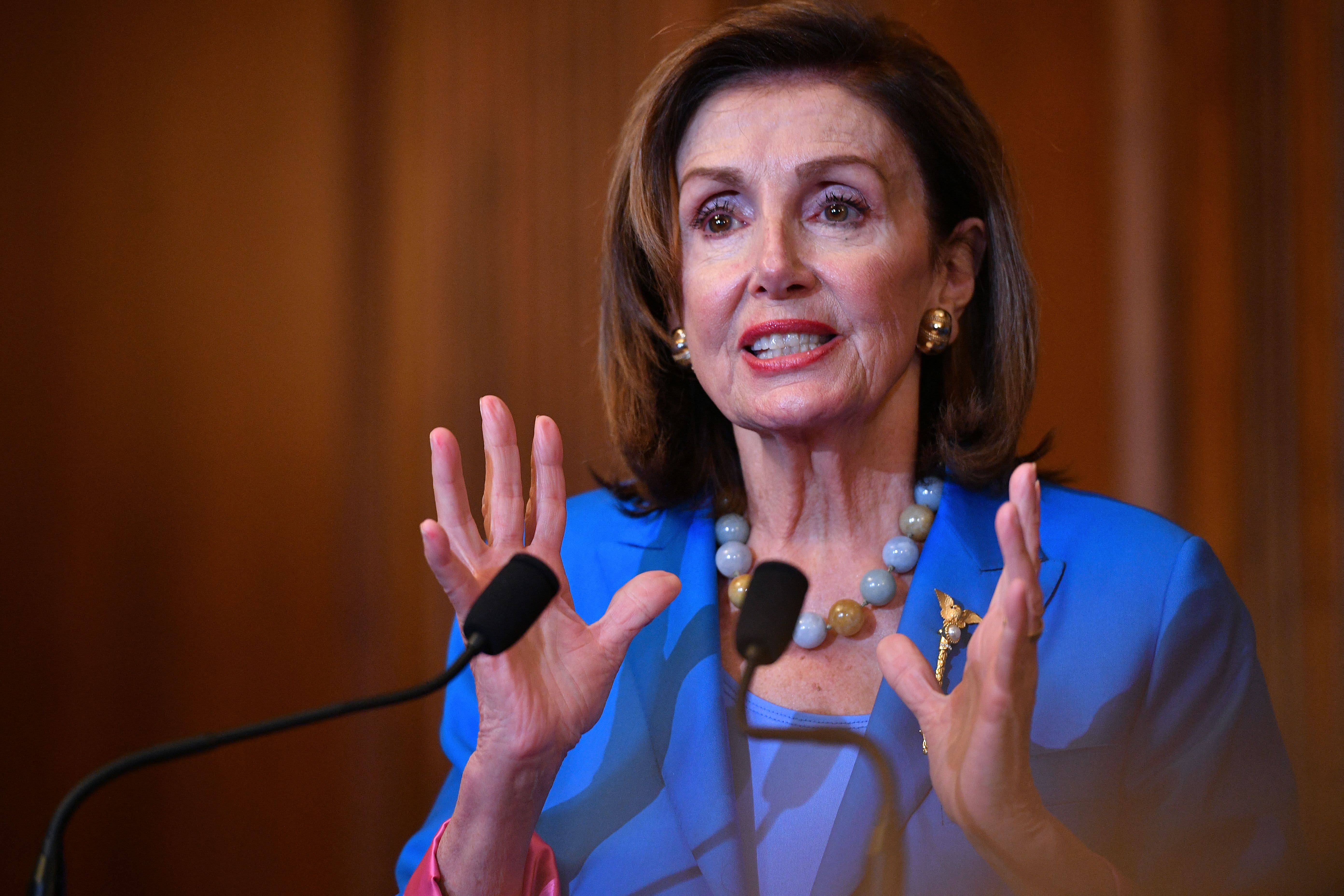
Speaker of the US House of Representatives Nancy Pelosi signs a bill to fund the US government avoiding a federal shutdown at the US Capitol in Washington, DC on September 30, 2021.
Mandel Ngan | AFP | Getty Images
Congress was poised to prevent a government shutdown Thursday with hours to go before a midnight deadline.
The Senate and House both passed a short-term appropriations bill that would keep the government running through Dec. 3. The U.S. will avoid a lapse in funding once President Joe Biden signs it into law.
The Senate approved the legislation in a 65-35 vote. All 50 Democrats backed it and 15 Republicans joined them.
The House passed the bill by a 254-175 margin as every Democratic representative and 34 Republicans supported it.
The so-called continuing resolution will set spending at current levels into December while lawmakers hash out a full-year funding plan. The legislation includes money for hurricane relief and the resettlement of Afghan refugees.
“This is a good outcome, one I’m happy we are getting done,” Schumer
A government shutdown could have led to furloughs of federal workers and the suspension of certain services. A funding lapse could pose particular challenges during U.S. efforts to fight the coronavirus pandemic — though the Biden administration has said a shutdown would have little effect on public health functions.
Congress was set to snuff out one possible crisis Thursday but has another looming. Lawmakers still need to raise or suspend the debt ceiling before Oct. 18 to prevent a possible default on U.S. debt that would result in job losses, economic damage and a drop in the stock market.
Democrats, who control both chambers of Congress, tried to fund the government and suspend the debt ceiling as part of the same bill. Senate Republicans blocked the legislation, even though extending the ceiling doesn’t authorize new spending. Approval would let the Treasury to cover its existing obligations.
Senate Minority Leader Mitch McConnell, R-Ky., repeatedly said his party would vote for a funding bill without a suspension of the debt ceiling.




